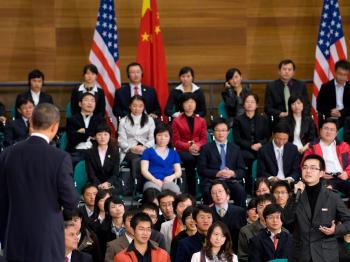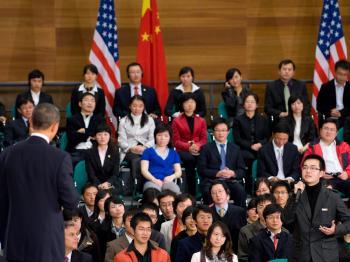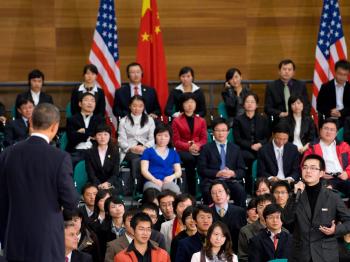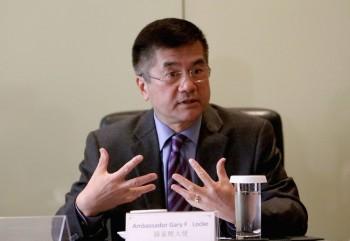If President Obama had hopes during his trip to China last week of speaking directly to the Chinese people on such sensitive topics as human rights, those hopes were foiled by the careful arrangements of his hosts and the fallout from an ongoing power struggle.
Obama’s first chance to do so was the U.S.-style town hall meeting between Obama and Chinese university students that took place in Shanghai on Nov. 16.
The meeting, though, was only broadcast by a local television station, not by a national TV station. Some Web sites had a live online broadcast, but the quality was so bad that his speech could hardly be understood.
Some Web sites did publish the entire transcript of his dialogue with the students—for 27 minutes. Then the transcripts were taken down and cleaned up by the Chinese authorities.
Only politically trusted students were selected to attend the meeting. Liu Yufen, 21, a student from Shanghai Jiao Tong University, said that he and other selected fellow classmates went through training for a whole afternoon prior to the meeting.
The questions asked by the students in the hall were written by the authorities. The Chinese netizens criticized the questions asked by the students as being “Xiao Er Ke”—childish, a Chinese expression for something with no depth.
For example, the first question was “So what measures will you take to deepen this close relationship between cities of the United States and China? And Shanghai will hold the World Exposition next year. Will you bring your family to visit the Expo?”
After one person asked Obama about his winning of the Nobel Prize, another person asked about it again, “I want to ask you in the other aspect that since it is very hard for you to get such kind of an honorable prize, and I wonder and we all wonder that—how you struggled to get it. And what’s your university/college education that brings you to get such kind of prizes?”
The question that pushed the regime’s limits did not come from the students inside the hall, but was asked online. It was read by U.S. Ambassador Jon Huntsman. The question was “In a country with 350 million Internet users and 60 million bloggers, do you know of the firewall? Should we be able to use Twitter freely?”
The question referred to China’s Great Firewall, the Chinese regime’s Internet censorship system. Obama’s remarks supporting Internet freedom were cut out from China’s official transcript.
Opinion
How Obama Was Censored in China
Any attempts by President Obama to speak directly to the Chinese people were deftly foiled by his hosts.

A student asks U.S. President Barack Obama (L) a question during a town hall meeting at the Museum of Science and Technology in Shanghai, on Nov. 16. Saul Loeb/AFP/Getty Images
|Updated:



